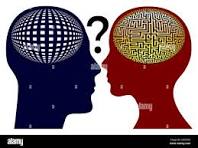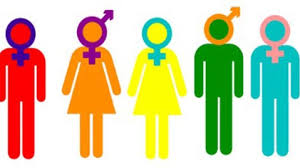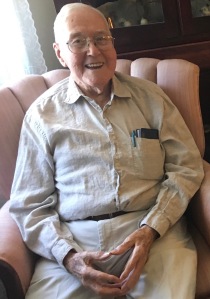This week we move to part four, the final post on maintaining balance. I’ve written about the differences between left and right brain functioning, including differences between the sexes. Today we look at how this has played out in the Christian religion.
For 1500 years Christianity was fairly balanced between right brain and left, though you could make an argument there was a heavier emphasis on the right hemisphere. That makes sense, since our species from its inception has been more right brain than left. The focus was on the numinous, the experience of God more than knowledge about God.
In the modern age, the age of science, that changed. The church could not wait to adopt the ways of Descartes, Newton, Bacon and other thought leaders to become scientifically respectable. Christianity moved from being focused on a holistic experience of life, to a religion that broke everything into its tiniest parts for analysis and interpretation. The Bible went from a narrative to a supposedly scientifically accurate book of facts, rules and regulations. Up to this time, the notion that the Bible might be without error in its original manuscripts (inerrancy) was not a subject of concern.
In the modern age Christianity became a system of beliefs instead of a story to be experienced. In evangelicalism, the charismatic movement of the 70s and 80s tried to counter the tide, but it had its own problems. Movements born of swinging pendulums rarely succeed. They just swing to the other extreme.
This paradigm shift took Christianity from an embodied religion to one that favored mind over body. An incarnational religion became a disembodied religion. A medium that specializes in disembodied images (computer, television, and smartphone screens) became preferable to a room full of embodied people. Does anybody else see this as a problem for what is, at its core, an incarnational religion?
When Christianity sold its soul to the modern age, it not only abandoned its roots, it rejected its role as an essential part of the nature of humans – our need for that which is numinous, ineffable, mysterious, awe inspiring, and wonder producing.
Should we be surprised that after a century in which 70 percent of Americans identified with a local religious body (emphasis on body), in just 22 short years – 1999 to 2021, that dropped to 47 percent? I mean seriously, why bother?
The right brain has always been more interested in the meaning of life, not the particulars of life. Whether Stonehenge, the carved bodies of Rapa Nui, or the burial mounds of indigenous Americans, the role of religion has always been to join people together to make meaning of life and experience life in community.
Quantum physics brought an end to the modern age. When it is understood that the ultimate building blocks of the universe are not made of matter, but of a pattern of relationships between nonmaterial entities, the modern age and its notion of scientific certainty was no longer able to maintain its stranglehold on the Western world. You know, Heisenberg’s Uncertainty Principle, Chaos Theory, and the like. When the only ultimate reality is relationships, is it much of a stretch to say the greatest power in the universe is love? Yeah, that doesn’t sound all that compatible with the modern age and its notions of scientific certainty.
I have hope that postmodernism will be more compatible with religion than the modern age was, that it will be more right-brain oriented than the modern age.
This difference between right and left brain functioning also has its impact on how we express and value the six core human emotions. That is where we next turn our attention.
The Six Core Emotions in the Modern Age
American psychologist Paul Ekman identified six core human emotions. We call them core emotions because they bring about a physiological response that can be measured. Those responses include a dry mouth, hair standing up on the back of the neck, goosebumps, rapid pulse, and sweaty palms, among others. The core emotions that elicit these responses are happiness, sadness, anger, fear, surprise, and disgust.
These six core emotions exist in the ether and come to us whether we want them to or not. They arrive with their bags and demand entry, and we have little we can do except allow them through the door and show them the guest room. We can let them know when they have overstayed their welcome, but whether or not we grant them entry is not an option. They arrive courtesy of the midbrain, the amygdala and hippocampus.
We also have feelings that develop in response to the six core emotions. Those feelings, numbering in the scores, are highly personal and arrive courtesy of our own personal experience.
The core emotions arrive via the right hemisphere of the brain, the hemisphere that focuses on experience. From there they are transferred to the left hemisphere, which tries to make rational sense of these core emotions. Normally, they are then passed back to the right brain where they can be placed in context. The right brain has the capacity to hold complex and competing concepts at the same time without rushing to premature conclusions.
During the 500 years of the modern age, the left brain was more respected than the right, though the right has always been the primary hemisphere of our species and the left its emissary. That means these core emotions end up not being placed in holistic context.
Let’s consider just two of the core emotions, anger and fear. If both remain in the left brain and are not placed in context, would it be possible for these emotions to be attached to purely external stimuli subject to the rational machinations of the left brain? Suppose you are a part of a society that says the greatest threat to our well-being is the transgender population, might you be inclined to attach your fear and anger to those external stimuli, as opposed to integrating them into your own narrative?
Eighty-seven percent of evangelicals believe gender is immutably determined at birth, and 67 percent believe we already give too many civil rights to transgender people. Interestingly, only 31percent actually know someone who is out as a transgender person. That means their knowledge about trans people is likely left brain and rational, based on their trusted sources of information.
That is one of the reasons I do my best to get in front of evangelicals whenever possible. If they actually see and listen to a transgender person, they have little choice but to allow their right brain to enter the equation and place that “rational” information in the context of an actual human. When that happens, I find fear and anger dissipate quickly. Proximity and narrative can cause the brain to move information from the rational information-based left hemisphere to the experiential holistic right hemisphere.
This is one of the reasons debates do little to change the narrative. Debates keep us in the left hemisphere of the brain. Human interaction and narrative bring us to the more context-oriented right brain.
In The Righteous Mind, Jonathan Haidt says people do change their minds, but not unless information comes to them in a non-threatening way. It took America 150 years to begin to deal with slavery. On the other hand, in little more than fifty years we moved from being a homophobic society to marriage equality becoming the law of the land. How did that happen so quickly?
I would suggest it happened because information came to individuals via the right brain in a very non-threatening way, through stories told via television comedies people watched in their homes. It began with Norman Lear’s All in the Family, which introduced the subject. From there we went to the scripted Ellen show, in which the protagonist was a woman who came out as a lesbian. Next was Will and Grace, a comedy in which the showrunners wanted to focus on will and grace, hence the names they gave the main characters. After that, we moved to Modern Family, in which one of the three main story lines was about a gay family.
And today? Today there are plenty of characters on television comedies who are gay people, but they are incidentally gay. The narrative has shifted. Outside of the evangelical world, most people are supportive of gay rights. Over half of Millennial and GenZ evangelicals are supportive of marriage equality. The tide has shifted, in part because information arrived in a non-threatening way, through narrative comedy that appealed to both hemispheres of the brain.
Every time we have a 500-year paradigm shift, movement happens in fits and starts, with those opposed to change fighting mightily to keep the status quo. Postmodernism is here. Evangelical Christians cannot stop it, but that does not mean they will give up the fight in the near future. They do seem to be softening on gay issues, while taking more strident positions on transgender issues. Eventually they will also give up that battle, though I will be surprised if it happens soon.
In the meantime, I will continue to say what I’ve said since my first TED Talk in 2017, “The call toward authenticity is sacred, and holy, and for the greater good.”
And so it goes.









